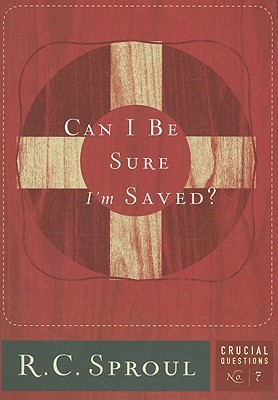Only One Way: Christian Witness in an Age of Inclusion. Edited by Michael L. Johnson and Richard D. Phillips. 2018. P&R Publishing. 169 pages. [Source: Review copy]
The seven chapters of Only One Way were originally addresses prepared for the 2005 Philadelphia Conference on Reformed Theology sponsored by the Alliance of Confessing Evangelicals. The chapters include:
"One Among Many" by David F. Wells
"One Gospel" by Albert Mohler
"One God" by Peter R. Jones
"One Savior" by Richard D. Phillips
"One Truth" by Philip G. Ryken
"One Way" by D.A. Carson
"One People" by J. Ligon Duncan III
I would definitely recommend Only One Way. If I had to sum up the message of the book, I'd say it was a not-so-gentle call to fellow Christians to WAKE UP and thoughtfully consider what they believe and reflect on if their actions match up with what they say they believe. It's a call to embrace the truth of the Bible, to discern between the true gospel and all other false gospels no matter their origins, no matter the sincerity of their proclaimers and followers. It's a call to be separate from culture, to be transformed by the Word of God instead of conformed to the world. It is also a clear, definite call to evangelize. Not "do evangelism" in a pragmatic, systematic way geared to produce results--numbers. But to proclaim the Good News always--in and out of season, no compromises, no gimmicks.
Each address focuses on a specific scripture passage. David Well's passage is Acts 17.
Our inclination is to get the audience to the gospel in the shortest
possible time and in its most stripped-down version. If inquirers have
questions, they come later, not at the beginning. Paul, however, was
different. Before speaking about Christ and the gospel, he spoke about
worldviews. The reason for this is rather clear. Jews who heard Paul’s gospel were
people well prepared by the Old Testament in their understanding about
the nature of God and his relation to the creation, his holiness, the
reality and consequences of sin, and the necessity of sacrifice. The
pagans to whom Paul spoke were at sea in all of these matters. It was
therefore important to Paul that the worldviews of his listeners be
confronted first. Otherwise, the gospel might have been absorbed into false worldviews in
which its nature and uniqueness might well be lost. The gospel, after
all, is not a disembodied message that can be assimilated into just any
worldview. Rather, it comes within its own understanding of the world,
outside of which the gospel makes no sense at all. ~ David Wells
Paul assumed that his culture was fallen, that its religions were
mistaken, and that redemption meant a clean break with all “natural”
religion. We tend to assume the opposite. We assiduously read Barna polls to find the best ways to capitalize on
the culture, to find the latest personalities to whom the gospel wagon
can be hitched. Evangelicals rush in droves to embrace what they think
is “culture” (though what they are really talking about is mostly
passing fads and fashions) in the forlorn hope that they will find in it
the recipe for their own success and acceptance. What results from this kind of accommodation to the culture is that the
Christian gospel seems little different from the kind of general
spirituality that is now pervasive throughout all Western cultures. Evangelicals have been in the business of minimizing and reducing the
gospel to its bare essentials, putting it in the most appealing secular
form, selling and marketing it, and stripping it of its doctrinal
framework. Any kind of doctrine present in the framing of the gospel, it
is believed, will put people off; and so, in order to assure more
success, all doctrine has now gone.
The kind of spirituality that is being offered—a spirituality without
doctrinal truth, without the full recognition of the reality of sin,
without any sense of the due holiness of God, and without too much need
for the cross—is little different from the spirituality pervasive in the
culture, a spirituality that is often not religious. The gospel being
marketed to postmodern consumers is a gospel perverted by these same
postmodern consumers, who have been encouraged to think that they can
“buy” on their own terms. And those terms have far more in common with
paganism than we realize or might like to know! ~ David Wells
Albert Mohler's passage is Romans 8:28-39. But he gives an overview of Romans 1-8!
No matter our denominational affiliation—Presbyterian, Baptist, and so
on—we are people of the gospel. We are one in the one gospel. Wherever
the gospel is found, our people are found. Wherever the gospel is found,
this is where God’s people are. The gospel defines us. ~ Albert Mohler
One of the problems with our generation’s presentation of the gospel is
that it doesn’t begin with the reality of human sinfulness. We’re living in an age of synthetic gospels. The gospel is under attack.
It is being subverted. And, as at so many points in the history of the
Christian church, we see the need to clarify the gospel.
Gospel confusion is writ large throughout history. The clear articulation of the gospel in terms of what it is and what it is not is the responsibility of this generation. ~ Albert Mohler
Peter Jones' passage is Genesis 1:1
Many Christians will be surprised to learn that the chief doctrinal
attack in our time is directed not against the inspiration of Scripture
or the deity of Christ, but against the doctrine of God. The very denial
of God is one of the chief obstacles to our preaching the gospel today. ~ Peter Jones
Richard D. Phillips' passage is Romans 3:23-25. This chapter is SO important and relevant. It should be required reading for anyone who watches the news.
There is something wrong in the world. The question is, what is it? What
is the problem facing mankind? This is important, because the nature of
a problem always determines the nature of its solution. It is because
of Christianity’s and the Bible’s answer to this question—why aren’t
things the way they’re supposed to be?—that we proclaim Jesus Christ as
the one and only Savior. ~ Richard D. Phillips
What really separates Christianity from all other religions is not
merely its doctrine of Christ but its doctrine of sin. According to the
Bible, the problem with this world, the reason that things aren’t the
way they’re supposed to be, is sin—that is, the transgression of God’s
law and the power of evil that thus takes residence in our hearts. ~ Richard D. Phillips
Is Jesus the one way that God has established? Everywhere today we hear,
“There are many ways to God.” Let us observe, at least, that Jesus
taught the exact opposite. There are many ways to hell, he said, but
only one way to God. “The gate is wide and the way is easy that leads to
destruction, and those who enter by it are many. For the gate is narrow
and the way is hard that leads to life, and those who find it are few”
(Matt. 7:13–14). ~ Richard D. Phillips
Philip G. Ryken's passage is John 18:37-38.
It would be hard to think of even a single major doctrine of the
Christian faith that is not under attack in these postmodern times. The
doctrine of God (which is attacked by open theism), the doctrine of
Scripture (which is undermined by doubts about inerrancy), the doctrine
of the atonement (which is destroyed by the denial of our need for a
blood substitute), the doctrine of justification (which is redefined and
thus disabled by new perspectives on Paul and the law)—everything seems
to be under attack. But no attack is more fundamental than the attack
on truth itself—the assault on the very claim that some things are true
and others are false. ~ Philip G. Ryken
The Bible is constantly discriminating between truth and falsehood, especially in relationship to the gospel. ~ Philip G. Ryken
We cannot be both for and against the truth. We have to choose. If we
are not for the truth—the truth that God has revealed in the story and
the theology of his Word—then we are against it. Philip G. Ryken
D.A. Carson's passage is Matthew 7:13
Since critics often measure Christians against Jesus’ Sermon on the
Mount, let us begin there. One of the first things a careful inquirer
finds is that the Sermon on the Mount is anything but simplistic. The
same Jesus who says, “Do not judge, or you too will be judged,” also
says, “Do not throw your pearls to pigs”—which means somebody has to
figure out who the pigs are (Matt. 7:1, 6). The same Jesus who says,
“Turn . . . the other [cheek]” (Matt. 5:39) adds, at the end of the
Sermon on the Mount, some startlingly antithetical things. Particularly
in the last section, Matthew 7:13–29, Jesus casts four striking
antitheses: two ways, two trees, two claims, and two foundations. In
each instance, there are but two possibilities, there are only two
ways—one of which is right and the other wrong. ~ D.A. Carson
Why must we choose between a narrow gate with a small, narrow road and a
broad gate with a wide road? How about an in-between road—not too
narrow, not wide and relativistic, but sort of in between? ~ D.A. Carson
At the end of the day there are only two ways: the way of the kingdom or
the way of death. But still, we cannot save ourselves by obeying the
Sermon on the Mount. This is why Christians have always recognized that
the Sermon on the Mount simultaneously tells us how to live and exposes
us to the fact that we cannot meet the challenge. It probes us deeply
and shows us our inconsistencies and our double standards. ~ D.A. Carson
J. Ligon Duncan's passage is 1 Peter 2:9-10.
© Becky Laney of
Operation Actually Read Bible














